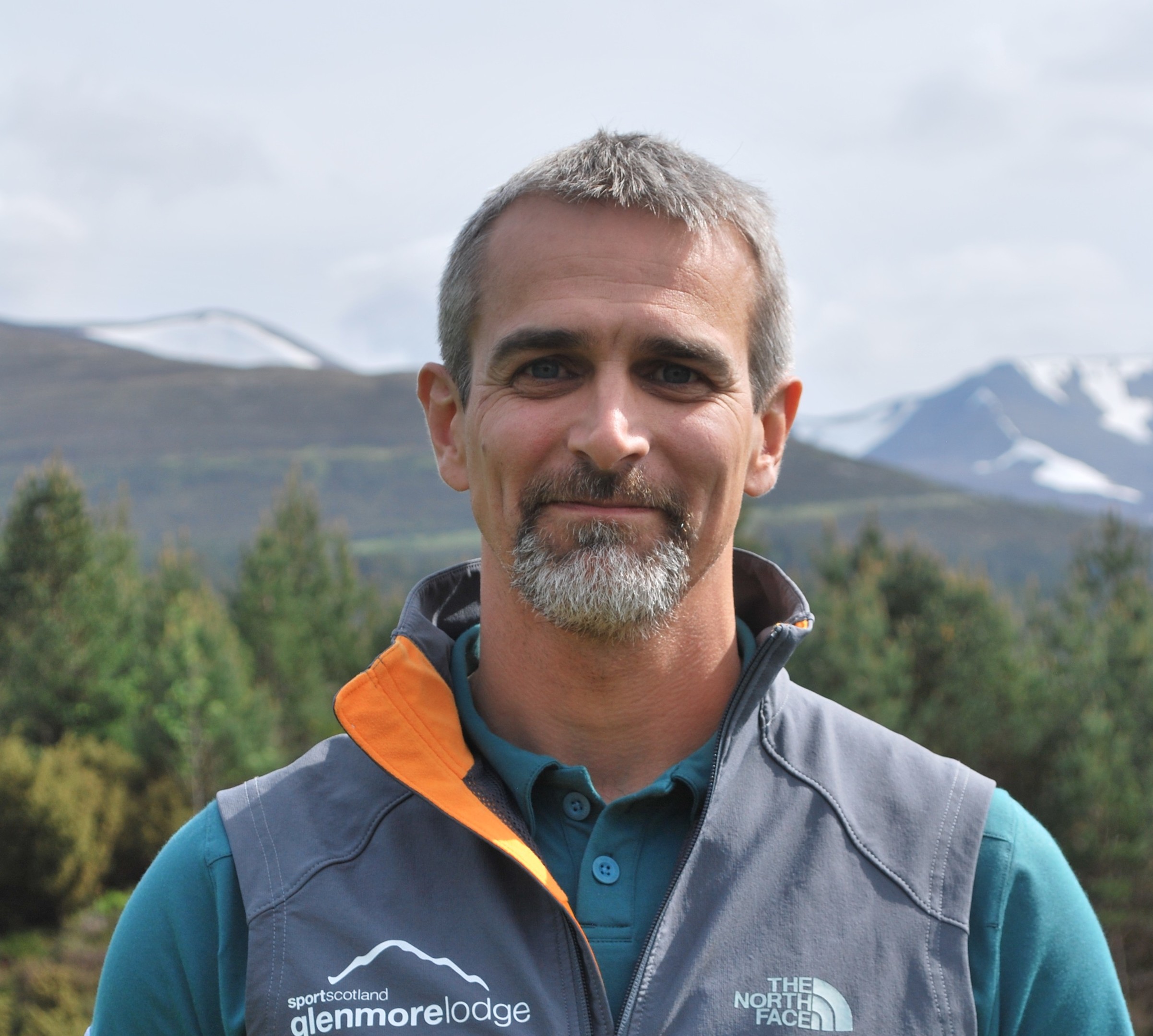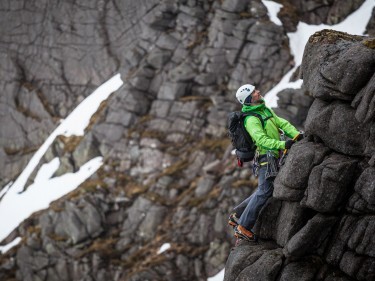Shaun Roberts, 46, principal at sportscotland’s National Activity Centre, Glenmore Lodge, gives an insight into his adventurous career
What did you want to be when you were young?
When I look back it’s clear that I wanted life to be an adventure. Throughout the 70’s and 80’s we were brought up on a strict diet of black and white war movies every Sunday, then mid-week Dr Who would take on the Galaxy and Captain Kirk would ‘Boldly go’. When the Falklands War started I was a 14 years old and it made me want to be a soldier. Fortunately I was rejected by every armed force in the UK on the basis of having asthma. Adventure then had to be something else and I subsequently found climbing and mountaineering.
What are the main career stepping stones you have taken?
In terms of my career in the outdoors then it could be viewed as a journey from apprentice to director. My outdoor career started with Glenmore Lodge as part of the Instructor Development Scheme in 1992 (formally known as the Nightwatch Scheme) which is in many ways an apprenticeship year.
I then freelanced in the outdoor industry and slowly built up a working portfolio as well as starting my own small business with a friend. I then got a job with Glenmore Lodge as a full-time instructor in 1998, and later became Head of Safety. I had a secondment year with Scottish Mountain Rescue, as a fulltime project manager in 2012, and have been part of their voluntary Executive since 2010 which has played an important part in developing my skill set. This year I was successful in my application to become the principal of Glenmore Lodge.
Looking back, is there anything you would do differently?
Nobody’s journey through life and career is perfect. So yes, there are some things I would change. It has only been later in my career that I have been more strategic about the choices that I make.
Overall I am delighted with the path my career has taken. As a young man I made some bold decisions to follow a dream by making sport my career, rather than engineering. I gave up a good wage and long term career prospects, cashed in my employee shares for a journey north to the mountains, £20 a week and the promise of adventure. The adventure turned into a career and 23 years later I hold one of the most significant roles within our industry – shaping the future of the National Centre.
What do you want to achieve in the rest of your career?
My career is at a real transitional moment, professionally I have effectively hung up my boats and paddles and swapped them for a desk and a meeting schedule. I need to reapply my skills within a new environment and it’s presented a completely different adventure.
Short term achievements are around tweaking the focus of the National Centre and strategically bringing some real impact to the Scotland’s outdoor sector over the next four to five years. Within this process I am absolutely determined to have the same amount of fun and enjoyment as I did when working among the mountains, rivers and sea. If I can achieve this while building a strong cohesive team at the Lodge then I would consider that a real achievement.
What have you actively tried to avoid in your career?
When I left school I wasn’t sure what to do in terms of a career, or ‘a job’ as we called it then. I went into electrical engineering following my father’s career, spent three years at university (or college as we called it then) and enjoyed my short time as an engineer. As I mentioned before, the big choice for me was leaving the security of this career and following a passion, which back then was mountains and climbing.
I would say that there are two things that I have avoided –
- Don’t wait in limbo for the perfect career, it is much better to start the journey with something, even if it doesn’t feel ideal at the time
- I have pursued a career which offered the greatest return in personal fulfilment and valued experiences. I have actively avoided chasing the biggest pay cheque. To this end it has been a selfish career and it has only been in the last decade that I have needed to support a family, which I believe puts personal ambitions down the priority list.
What has motivated you?
Taking people on amazing journeys and watching them absorb unique experiences, knowing that you have created this opportunity for them is truly rewarding. I am motivated by a challenge. Not the insurmountable, but something that requires a joint effort and skills to find a solution.
What’s the best way to motivate others?
Feeling a strong bond to your organisation and knowing that your successes, your independent choices, are part of the overall achievement is a very motivating place to be. The best way to motivate others is to create an environment of empowerment which encourages self-motivation.
Your favourite stress buster?
The sun on my back, warm rock in my hands and quality rock climb ahead of you. Feeling that I am performing well, knowing that the person holding my ropes is a trusted old friend.
Feeling tired but uplifted by a hug from the kids and cuddle with the wife.
A bit Walt Disney but it does it for me.
What’s your best career advice?
Talk to the people who have the job you want and be a good listener. Be honest with yourself and those you discuss your career opportunities with, even at interview. Find out what competencies are required for your dream job, find ways to develop these and apply them to the real world.
Be optimistic, if an application is rejected politely ask why and how you might improve your application next time.

